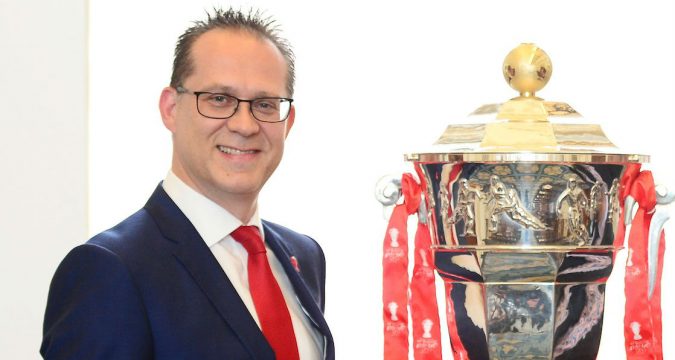
The Rugby League World Cup Chief Executive Jon Dutton believes that the fate of this year’s tournament could be decided within the next four days, after a round of consultation with NRL players to determine whether they want to compete in the tournament for countries they qualify for, despite the withdrawal from the tournament of Australia and New Zealand.
Dutton is not expecting the ARLC and the NZRL to reverse those decisions and he admits that the tournament is now in the balance, calling it a 50/50 chance of going ahead this year.
And he admits that a final decision, one way or the other, has to be made soon, and probably within 96 hours (four days).
Talks have been held with representatives of Indigenous and Maori select sides about them stepping up to replace the Kangaroos and Kiwis. But a key issue is whether NRL clubs will release players to participate in the competition and Dutton had already had a call earlier today with a group of NRL chief executives to discuss their concerns.
“It’s probably 50/50 but we can’t and don’t know until we listen to the players,” admitted Dutton.
“We’ve worked closely with the Rugby League Players’ Association and I can not speak highly enough of Clint Newton and his team. What’s clear is that the players’ voice wasn’t considered and we don’t want to take the same approach.
“A lot of the concerns are about well-being rather than safety, being in a bubble environment and away from their families. Without players we don’t have a tournament.
“But time is not on our side.
“Within the next 96 hours we need to get in front of as many players as possible to understand their fears.
“We are just over 80 days away from the tournament and we are talking about making a decision in a handful of days. I think at some point next week we will have a clear outcome.”
Dutton admits that to bring Indigenous and Maori sides into the competition at this stage would create significant logistical problems, not least the reluctance of some NRL clubs to release players who would qualify for those teams.
“We’ve been in communication with Indigenous and Maori reps. We’re excited by those propositions, they’re not national teams that readily exist but certainly that communication and consultation is already underway,” he added.
“They have to be sanctioned and that’s why it’s very much a position for the IRL. I think the precedent was set when a Maori team played in 2000, albeit in very different circumstances. We want to see the best players in the world.”
